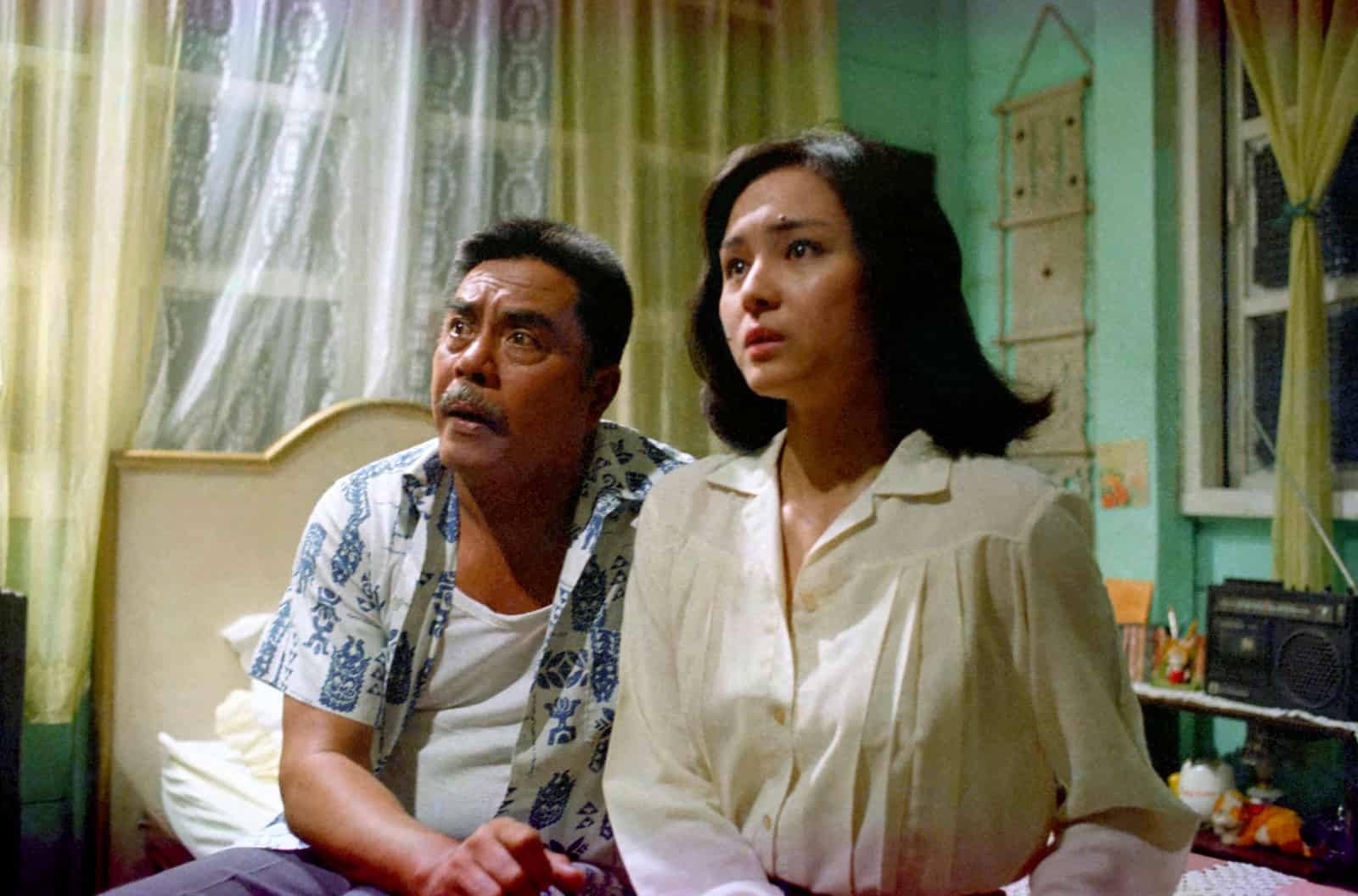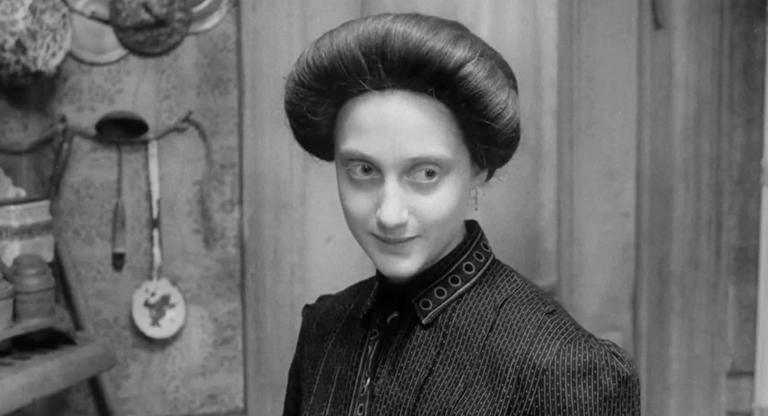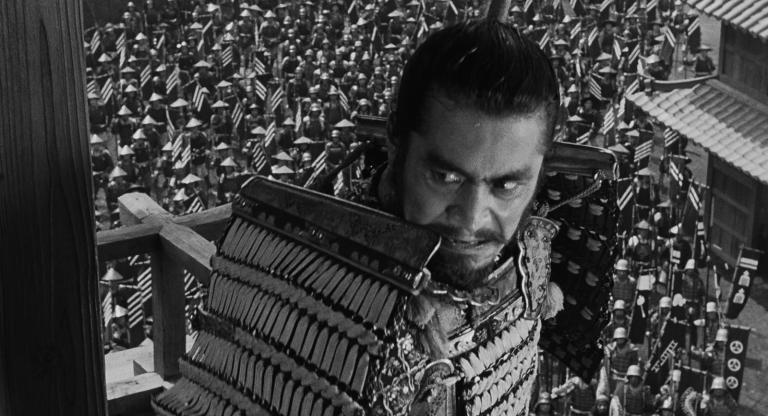Mike De Leon’s Kisapmata (1982) is the perfect allegory for the dictatorship under which it was made. The film adapts the celebrated writer Nick Joaquin’s 1961 true crime account “The House on Zapote Street,” bringing its gruesome case of familicide into the Marcos era. At its center is Mang Dadong (Vic Silayan), a retired police officer who rules over his split-level Manila house. When his daughter, Mila (Charo Santos), announces that she is pregnant and plans to marry her co-worker at the bank, Noel (Jay Ilagan), Dadong’s suffocating grip over his family tightens. Despite attempts to resist and flee Dadong’s dominion, all roads lead to the end of his .45 caliber handgun.
The patriarch of the Carandang family serves as an easy stand-in for the tyrannical regime that ruled from 1972 to 1986, and it’s no coincidence that De Leon wrote Dadang to be an Ilocano, hailing from the same region as the Marcoses. The beer-bellied, pistol-toting strong man is always standing guard in his arm chair, flanked by Catholic charms and idols. Viewers anxiously anticipate his next outburst: whether it will come after one of his ugly, thunderous laughing fits, or after prolonged overbearing silences. The implication of sexual violence against Mila and her mother Adeline (Charito Solis) also hangs heavily over the household. Conveyed through Dadang’s jealous, controlling gaze, these transgressions not only inform the father’s reign of terror in the real world, but also seep into Mila’s dreams. Shot in black-and-white, an early sequence depicts Mila exiting her room, water rushing out from beneath her door, as a slow, metallic melody plays in the backdrop. Fading from one shot to the next, viewers watch Mila descend into a confessional booth, where Dadang is waiting on the other side of the latticed partition.
De Leon’s unraveling of an archetypal middle-class family, revealing the most taboo of scandals, was bound to invite controversy. According to the director, the film barely made it into the 1981 Manila Film Festival, facing the threat of lawsuits, restraining orders, and cuts from the regime’s censors. Themes of incest repulsed family members of the victims as well as the government, the latter of which promoted conversative family values while downplaying the existence of crimes such as the ones depicted in the film. Joaquin praised De Leon’s dramatized depiction of his reporting, but would later reveal to the filmmaker that some of the details from the real-life case were far more disturbing than what was shown on screen. In his expansive photographic memoir, Last Look Back, De Leon wrote that, unbeknownst to the young couple, the father who would eventually murder them used to hide under their bed while they were asleep.
In his unyielding portrayal of perverted family dynamics, the late auteur unearths the seething moral and political corruption that’s informed the Philippines’ history of state violence. De Leon was a vocal opponent of the military dictatorship, but his films make it clear that the reign of the Marcos family is not a malicious aberration in Filipino history. Instead, works like Kisapmata suggest that corruption is far more endemic. It can take root anywhere, even among churchgoing public servants and respectable bank employees.
Kisapmata screens tonight, November 8, and throughout next week at BAM as part of the series “Kisapmata + Batch ‘81.”



